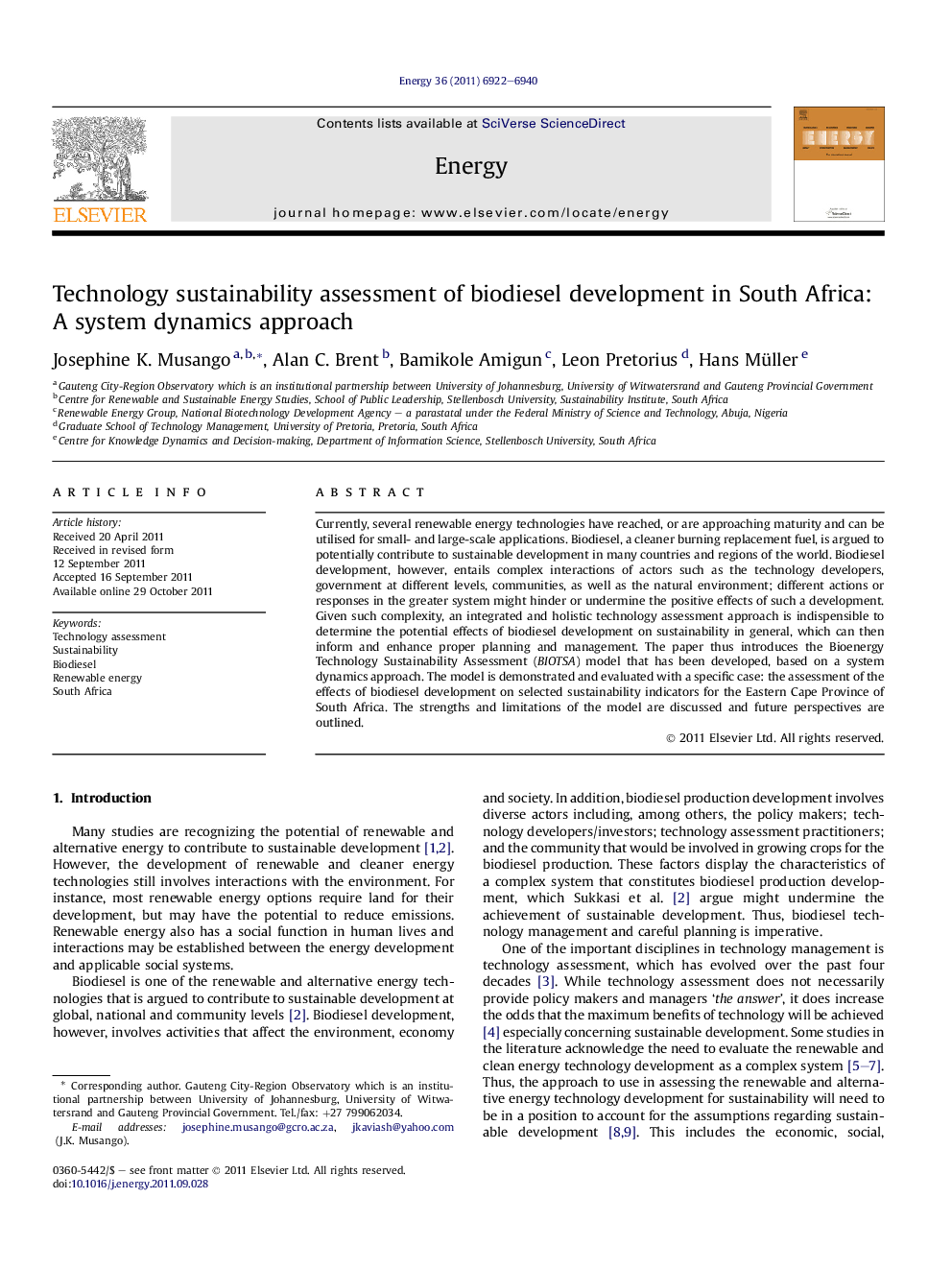| Article ID | Journal | Published Year | Pages | File Type |
|---|---|---|---|---|
| 1734060 | Energy | 2011 | 19 Pages |
Currently, several renewable energy technologies have reached, or are approaching maturity and can be utilised for small- and large-scale applications. Biodiesel, a cleaner burning replacement fuel, is argued to potentially contribute to sustainable development in many countries and regions of the world. Biodiesel development, however, entails complex interactions of actors such as the technology developers, government at different levels, communities, as well as the natural environment; different actions or responses in the greater system might hinder or undermine the positive effects of such a development. Given such complexity, an integrated and holistic technology assessment approach is indispensible to determine the potential effects of biodiesel development on sustainability in general, which can then inform and enhance proper planning and management. The paper thus introduces the Bioenergy Technology Sustainability Assessment (BIOTSA) model that has been developed, based on a system dynamics approach. The model is demonstrated and evaluated with a specific case: the assessment of the effects of biodiesel development on selected sustainability indicators for the Eastern Cape Province of South Africa. The strengths and limitations of the model are discussed and future perspectives are outlined.
► This paper presents Bioenergy Technology Sustainability Assessment (BIOTSA) model. ► The BIOTSA model was developed based on a system dynamics. ► BIOTSA assesses the impacts of biodiesel development on sustainability indicators. ► BIOTSA model is useful in exploring changes in expected biodiesel development.
